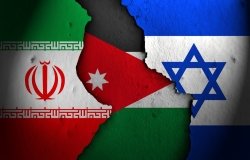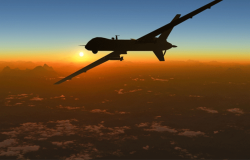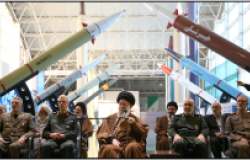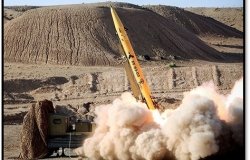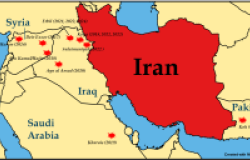kremlin.ru
Global Perspectives | Afghan-Russian Relations
Overview
This event is co-sponsored with the Asia Program.
From the Great Game, to the Soviet invasion, to the Global War on Terror, Afghanistan and Russia have had a long, complex, and at times violent relationship. In recent years, however, relations between both countries have seemingly been on the mend. Bismellah Alizada, Michael Kugelman, and Matthew Rojansky discussed the state of the bilateral relationship between Afghanistan and Russia and where it might be headed.
Selected Quotes
Bismellah Alizada
"The U.S. invasion post 2001, post 9/11 had created a situation in which Russia had no option but to at least apparently have a cooperative attitude towards the issues in Afghanistan. So what Russia did was… it gave the greenlight that the U.S. and NATO could use some of the bases in Central Asia and Uzbekistan and Kyrgyzstan, and then land transport routes so that the logistics of the NATO and U.S. forces could be transported to Afghanistan via Russia [...] As early as 2005, Russia grew concerned about these bases and about the U.S. and NATO presence in its periphery and then during the Shanghai Cooperation Organization summit, it was requested by them that the U.S. and international forces set a deadline for the withdrawal."
"Russia is waiting and seeing as to how to how to define its relationship because it’s unsure, everyone is unsure, actually, how the future state and the reconstruction of the state will look like. But generally speaking, Russia seems to be more comfortable dealing with some sort of like, autocratic kind of government than a democratic one in Afghanistan. This is somehow plausible. But another issue that is very important in this case is the vacuum that will be created here by the fall of the Taliban and the withdrawal of troops and in case of a breakdown of the negotiations and talks, so that would be another scenario that would really define how Russia will actually approach Afghanistan when it comes to its foreign policy."
Michael Kugelman
"If the U.S. Russia relationship were in a better place, there may be so much better scope for cooperation between Washington and Moscow in Afghanistan and that's because the two really see eye-to-eye on many issues in Afghanistan [...] Both the Russia and U.S. support a more stable and prosperous Afghanistan, both of them support the current peace process, they're both open to a political settlement that entails some degree of Taliban power and both the U.S. and Russia really worry about ISIS in Afghanistan and about the drug trade as well and you know, what I'm saying here about opportunities for cooperation squandered by toxic diplomatic relations, I think this can actually apply equally to the U.S. and Iran. Tehran, like Moscow, shares many of the same interests and goals with Washington in Afghanistan."
"Only after things changed, only after Russia annexed Crimea, after the Syrian War intensified and these and other factors made the U.S.-Russia relationship really go south, only after all this has it become more difficult for the U.S. and Russia to cooperate in Afghanistan and public narratives change as well. There were times when Russia was publicly praising U.S. security policies in Afghanistan but then those public narratives turned a lot more negative and more recently, Russia has criticized the U.S. for its handling of the very delicate political situation in Afghanistan."
Speakers
Hosted By

Kennan Institute
The Kennan Institute is the premier US center for advanced research on Russia and Eurasia and the oldest and largest regional program at the Woodrow Wilson International Center for Scholars. The Kennan Institute is committed to improving American understanding of Russia, Ukraine, Central Asia, the Caucasus, and the surrounding region though research and exchange. Read more

Indo-Pacific Program
The Indo-Pacific Program promotes policy debate and intellectual discussions on US interests in the Asia-Pacific as well as political, economic, security, and social issues relating to the world’s most populous and economically dynamic region. Read more
Thank you for your interest in this event. Please send any feedback or questions to our Events staff.







